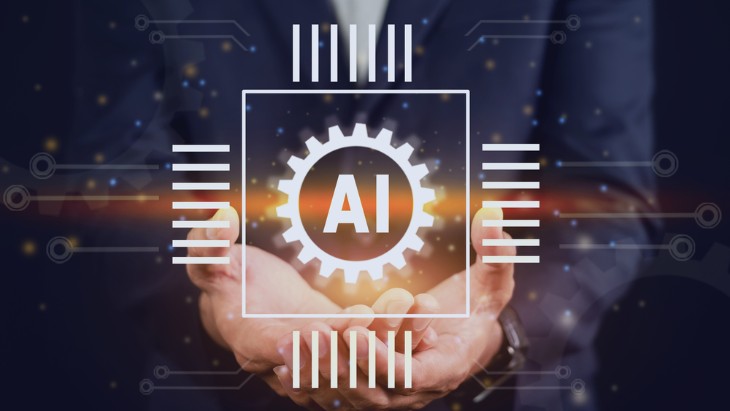Are you a horse racing enthusiast looking to gain an edge in predicting race outcomes? We explore AI and machine learning in the realm of horse racing, including the role of AI in enhancing predictive analysis and the benefits of machine learning for accurate race predictions. We dive into case studies and experiments showcasing the power of these technologies, discuss challenges and limitations in implementing AI for horse racing predictions, and consider ethical considerations for fairness and transparency. Looking ahead, we explore future trends and innovations in AI and machine learning for horse racing prediction, along with best practices for effective integration of AI models in predictive analysis. Whether you are a seasoned bettor or new to the world of horse racing, this article provides valuable insights and resources to enhance your predictive skills and stay ahead of the game.
Try out our own chatGPT based AI Horse Racing Tipster!
Introduction to AI and Machine Learning in Horse Racing Prediction
In the realm of horse racing prediction, the integration of AI and machine learning technologies has revolutionised the landscape, offering advanced algorithms and deep learning models to enhance predictive capabilities.
Through the utilisation of advanced algorithms in AI and machine learning, horse racing prediction has shifted towards a more data-driven approach. These technologies allow for the efficient analysis of vast amounts of historical race data, track conditions, jockey performance, and even weather patterns, enabling the creation of highly accurate predictive models.
Neural networks play a crucial role in processing this diverse data to identify intricate patterns and trends that might elude human analysis. By leveraging deep learning techniques, these networks continuously improve their prediction accuracy over time, adapting to changing variables and scenarios to provide insightful forecasts for race outcomes.
Understanding the Role of AI in Horse Racing
AI plays a pivotal role in horse racing by leveraging predictive data environments to analyse key factors influencing horse race winners and outcomes.
One specific application of AI in horse racing is its ability to process vast amounts of historical racing data to identify patterns and trends that may not be evident to human analysts.
Machine learning algorithms within AI systems can recognise correlations between different variables, such as horse performance, track conditions, jockeys, and more, to make accurate predictions on race outcomes.
By continuously learning from new data inputs, these algorithms can adapt and refine their predictions, providing a competitive edge to bettors and racing enthusiasts alike.
Benefits of Machine Learning for Predicting Horse Racing Outcomes
Machine learning offers significant benefits in the realm of horse racing predictions, providing insights into the betting market, statistical learning patterns, and enhancing the predictive power for evaluating horse performance.
Utilising machine learning algorithms in horse racing predictions can revolutionise the way wagering enthusiasts analyse races. By leveraging vast amounts of historical data, machine learning algorithms can identify hidden patterns and trends that may not be apparent to human observers. This sophisticated technology enables more accurate forecasting of race outcomes, giving punters a valuable edge in predicting winners. The ability to process diverse sources of information simultaneously allows for comprehensive race analyses that take into account various factors influencing horse performance, such as jockey skills, track conditions, and horse characteristics.
Case Studies and Experiments
One compelling case study exemplifying AI's prowess in horse racing involves the deployment of logistic regression models to predict race outcomes based on a variaty of variables. By feeding historical data such as horse performance, jockey statistics, track conditions, and more into the model, researchers were able to identify key factors influencing race results.
In another experiment, Support Vector Machines were employed to classify horses into different performance categories, allowing trainers and bettors to make informed decisions based on the AI-generated classifications. This use of sophisticated AI algorithms significantly enhanced the accuracy of race outcome predictions, revolutionising the traditional approach to horse racing analytics.
Using AI for Horse Racing Betting: A Personal Experience
Utilising AI in horse racing betting not only enhances the decision-making process but also opens up a world of possibilities for creating sophisticated strategies. Machine learning algorithms can analyse vast amounts of historical data, identify patterns, and predict outcomes with remarkable accuracy.
Much like in the stock market, timing is crucial in horse racing betting. Keeping a close eye on market movements, shifts in odds, and utilising the Kelly Criterion to manage risk can significantly improve one's chances of success.
Exploring the Results of AI-based Horse Racing Predictions
Neural networks, a fundamental component of AI systems, have revolutionised the accuracy of horse racing predictions. By leveraging complex algorithms and vast datasets, these networks can identify intricate patterns in race data that escape human analysis, leading to more precise forecasts.
Machine learning methodologies applied in these predictions enable the calculation of win odds with remarkable efficiency, providing valuable insights for punters and enthusiasts alike. Through the integration of AI technologies, the realm of horse racing analytics has entered a new era of data-driven decision-making and strategic wagering.

Challenges and Limitations
Despite the advancements in Artificial Intelligence for horse racing predictions, various challenges and limitations persist, affecting the accuracy of predictions and the implementation of machine learning models.
One of the primary challenges faced within the domain of AI for horse racing is the complexity of data integration, often comprising diverse and unstructured datasets. This poses a significant hurdle for obtaining clean, reliable data for training predictive models. The dynamic nature of horse racing events and variables such as weather conditions, track surfaces, and horse performance further complicate accurate predictions. Implementing machine learning models in this complex environment requires meticulous feature engineering and continuous model tuning to enhance prediction performance.
Factors Impacting the Accuracy of AI Predictions in Horse Racing
Incorporating Principle Component Analysis (PCA) into the predictive models allows for the identification of essential variables affecting race outcomes, enabling more precise predictions. Effective model construction involves gathering vast amounts of historical data on horses, jockeys, tracks, and race conditions, which when combined with advanced algorithms, enhances predictive capabilities.
The interplay between AI technologies and the unpredictable nature of horse racing presents unique challenges. Factors like weather conditions, track surfaces, and the form of horses on race day introduce variability that must be accounted for in model training and evaluation processes.
Addressing the Challenges Faced in Implementing Machine Learning for Horse Racing
Enhancing the performance of machine learning algorithms can significantly impact the accuracy of predicting horse race outcomes. By incorporating advanced statistical models and leveraging historical data trends, accuracy levels can be increased, providing more reliable insights into potential race winners. Refining winner prediction mechanisms involves fine-tuning feature selection, model training, and evaluation processes to ensure the effectiveness of the algorithm. Analysing betting activity data can offer valuable information on market sentiment and provide a competitive edge in adjusting strategies to maximise returns.
Ethical Considerations
The ethical dimensions of using AI in horse racing predictions warrant careful consideration, particularly concerning the treatment of horses, data environments, and ethical implications arising from the utilisation of Support Vector Machines for analytical purposes.
When AI algorithms are employed to predict outcomes in horse racing, it raises a myriad of ethical concerns that go beyond just gaining a competitive edge. It is imperative to ensure that the well-being of the horses is prioritised amidst the pursuit of technological advancements.
The transparency and accountability of the data handling practices become crucial to maintain the integrity of the sport. The ethical concerns surrounding the utilisation of Support Vector Machines Dive into questions of fairness, bias, and the broader societal impact of algorithmic decision-making processes.
Ethical Implications of Using AI in Horse Racing Predictions
When looking into the intersection of artificial intelligence and horse racing, a critical component to consider lies in the welfare and treatment of the equine athletes. AI-driven predictions can lead to optimisations in training methods and performance, potentially benefiting the well-being of the horses.
The integration of AI can revolutionize the betting market within the horse racing industry, presenting both opportunities and challenges. Algorithms may enhance accuracy in predicting outcomes, altering the dynamics of wagering and odds-making.
From an ethical standpoint, the application of game theory principles in AI algorithms raises questions of fairness, transparency, and accountability. Ethical frameworks must be established to ensure equitability in decision-making processes and to address potential biases inherent in algorithmic predictions.
Ensuring Fairness and Transparency in AI Algorithms for Betting
As advancements in technology continue to shape the landscape of horse racing betting, the role of AI algorithms has become increasingly prominent. A key consideration in this realm is the need for ethically sound practices to guide the development and deployment of such algorithms.
By integrating statistical learning approaches into the algorithmic frameworks, it is possible to enhance predictive accuracy while minimising biases. Upholding transparency standards not only fosters trust among bettors but also contributes to the overall integrity of the betting market.
Future Trends and Innovations
The future of AI and machine learning in horse racing holds promising innovations, driven by emerging technologies that aim to revolutionize predictive algorithms and enhance the efficiency of horse racing analytics.
One of the key trends reshaping the landscape of horse racing is the integration of AI-driven tools for data analysis and performance prediction, providing trainers and punters with valuable insights. Harnessing the power of machine learning algorithms, stakeholders in the industry are gaining a competitive edge by optimising training regimes and race strategies.
The convergence of big data analytics and AI is giving rise to sophisticated models that can process vast amounts of historical race data, helping with identifying patterns and trends that were previously overlooked. This data-driven approach is propelling the sport towards more accurate predictions and well-considered choices.
Potential Advancements in AI and Machine Learning for Horse Racing Prediction
The future of AI and machine learning in horse racing holds immense promise for revolutionising the predictive capabilities in the sport. As technology progresses, we can expect to see a significant increase in the accuracy of predictions, driven by the sophisticated algorithms employed in data analysis.
Incorporating progressive deep learning techniques will allow for a more nuanced understanding of the intricate factors influencing racing outcomes. By utilising the strength of AI, researchers and enthusiasts can Dive into unprecedented data analysis depth to uncover hidden patterns and trends that were previously inaccessible.
Emerging Technologies Shaping the Future of Betting in Horse Racing
Explore the emerging technologies that are reshaping the future of betting in horse racing, including AI-driven algorithms, computer vision applications, and neural network advancements that are revolutionising the betting market landscape.
Best Practices for Implementing AI in Horse Racing
Establish best practices for the effective integration of AI models in predictive analysis for horse racing, emphasising machine learning methodologies, statistical learning approaches, and the strategic use of Support Vector Machines to optimise betting accuracy.
Using AI in horse racing predictive analysis involves not only the selection of appropriate algorithms but also the careful examination of historical data to identify patterns. Support Vector Machines (SVM), a powerful tool in machine learning, can be particularly useful in classifying data points to aid in making more accurate predictions. By fine-tuning SVM parameters and training on relevant features, the model can improve its ability to forecast outcomes. Integrating ensemble methods such as Random Forests can further enhance predictive performance by leveraging the strength of multiple models.
Strategies for Effective Integration of AI Models in Predictive Analysis
Implement strategic approaches for integrating AI models in predictive analysis for horse racing, leveraging algorithmic insights, logistic regression models, and predictive factors to optimise the predictive efficacy for evaluating horse-related outcomes.
When incorporating AI models into horse racing predictive analysis, it is crucial to consider the diverse range of algorithmic applications available.
- Logistic regression model utilisation can be particularly effective in identifying and analysing predictive factors that play a significant role in determining racing outcomes.
- By fine-tuning these models with relevant variables such as track conditions, horse age, jockey performance, and past race performances, the accuracy and precision of predictions can be greatly enhanced.
Optimising Machine Learning Algorithms for Enhanced Betting Accuracy
Optimise machine learning algorithms to improve the accuracy of betting predictions in horse racing, focusing on AI-driven methodologies, statistical learning principles, and the assessment of win odds to refine the betting accuracy for horse-related outcomes.
One crucial aspect of optimising machine learning algorithms in horse racing betting is the utilisation of AI-driven methodologies, which leverage sophisticated algorithms to analyse vast amounts of historical data.
By incorporating advanced statistical learning applications, these algorithms can uncover intricate patterns and trends within the data, enabling more precise predictions of potential race outcomes.
The analysis of win odds plays a pivotal role in enhancing the precision of betting predictions by considering various factors such as past performance, track conditions, jockey statistics, and other relevant variables.

Resources for Further Learning
Explore diverse resources for advancing knowledge in AI and machine learning applications for horse racing, ranging from academic repositories like arXivLabs to curated datasets tailored for horse-racing analytics.
When looking into the realm of AI within horse racing, individuals can benefit from diving into research papers on platforms such as IEEE Xplore and SpringerLink, uncovering advanced algorithms and methodologies that accelerate predictive modelling in this unique sports domain.
Specialised journals like the Journal of Artificial Intelligence Research can provide in-depth insights into the intersection of AI and horse racing.
Tailored online courses, such as those on Coursera or edX, offer interactive learning experiences on machine learning principles applied in the context of equine performance analysis.
For practical applications, exploring tools like TensorFlow and scikit-learn allows enthusiasts to experiment with building predictive models that enhance horse-racing strategies.
Recommended Reading on AI and Machine Learning in Horse Racing
For a comprehensive understanding of AI's role in horse racing, 'Applications of Artificial Intelligence in Horse Racing: Data-Driven Decision-Making' Dives into the intricacies of algorithmic strategies tailored for the sport.
'Insider's Guide to Betting on Horse Racing Using Machine Learning' provides valuable insights into leveraging machine learning to navigate the dynamic betting market landscape with precision.
Exploring how AI revolutionises horse performance analysis, 'Harnessing AI for Enhanced Equine Performance Evaluation' offers a glimpse into cutting-edge technologies reshaping the sport.
In terms of predictive analytics in horse racing, 'Predictive Modelling in the Sport of Kings: A Logistic Regression Approach' showcases the application of logistic regression models to predict outcomes with accuracy.
Online Courses and Tools for Developing Skills in Predictive Analytics
Engage with online courses and specialised tools to enhance skills in predictive analytics for horse racing, exploring topics like betting market analysis, AI-driven solutions for horse-related data sets, and statistical learning modules tailored for predictive insights.
Dive into courses that offer a deep dive into the nuances of predictive analytics within the realm of horse racing. These courses provide a comprehensive understanding of the betting market exploration strategies used by professionals. They also focus on the integration of cutting-edge AI applications in horse analytics, showcasing how technology can revolutionise the predictive aspects of racing outcomes.
These courses emphasise the importance of building a strong foundation in statistical learning components to derive meaningful and accurate predictive insights. By mastering the utilisation of datasets specifically curated for horse racing analysis, learners can gain a competitive edge in this specialised field.
Frequently Asked Questions
1. What is AI and Machine Learning in Horse Racing Prediction?
AI (Artificial Intelligence) and Machine Learning are technologies that use algorithms and statistical models to make predictions and decisions based on large amounts of data. In the context of horse racing, these technologies can be used to analyse past race data and make predictions about which horses are likely to win future races.
2. How accurate are AI and Machine Learning predictions in horse racing?
The accuracy of AI and Machine Learning predictions in horse racing depends on the quality of the data used and the algorithms used for analysis. However, studies have shown that these technologies can achieve a high level of accuracy, often outperforming traditional human handicapping methods.
3. How can AI and Machine Learning improve horse racing betting?
AI and Machine Learning can improve horse racing betting by providing more accurate predictions and insights into race outcomes. This can help bettors make more informed decisions and potentially increase their chances of winning.
4. Is AI and Machine Learning used in horse racing betting in the UK?
Yes, AI and Machine Learning are increasingly being used in horse racing betting in the UK. Many bookmakers and betting websites use these technologies to provide predictions and odds for upcoming races.
5. Can AI and Machine Learning predict long-shot winners in horse racing?
Yes, AI and Machine Learning can analyse data from past races and identify patterns that may indicate a long-shot horse has a higher chance of winning. However, it is important to note that these predictions are not foolproof and should be used in combination with other factors when making betting decisions.
6. Are there any drawbacks to using AI and Machine Learning in horse racing prediction?
One potential drawback of using AI and Machine Learning in horse racing prediction is that it relies solely on historical data and may not take into account external factors such as weather conditions or unexpected changes in a horse's performance. Additionally, these technologies may not be accessible to all bettors, as they often require advanced technical knowledge and resources.
Try out our own chatGPT based AI Horse Racing Tipster!
For more information:








